'Weight loss headset' developed by NI man is showcased in US
- Published
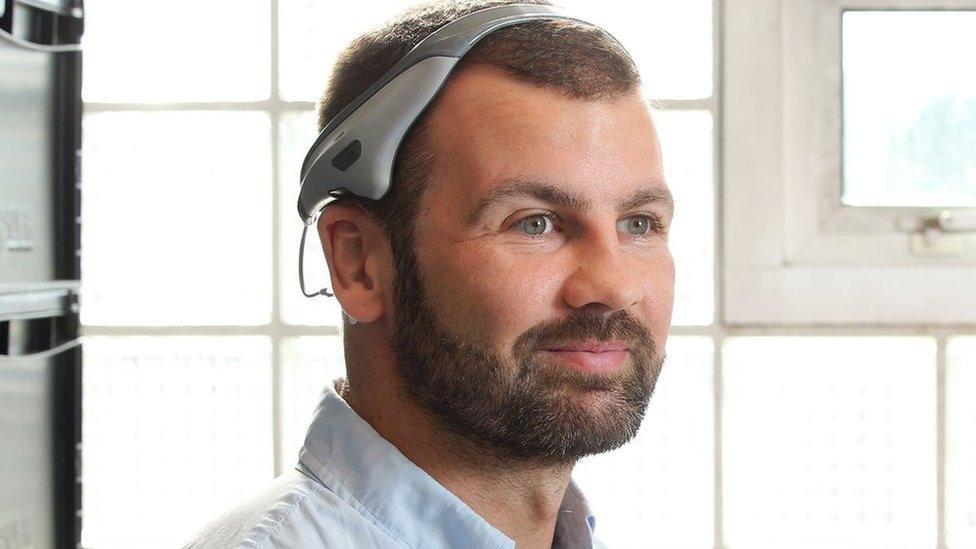
Dr Jason McKeown wearing the Modius headset that his Belfast-based firm has developed
A Northern Ireland firm that developed a headset aimed at helping weight loss is on the award shortlist at the tech world's biggest event for innovators.
The product, Modius, claims to stimulate the part of the brain that controls fat storage and metabolism.
The company, Modius Health, was set up by neuroscientist Dr Jason McKeown from Portglenone, County Antrim in 2013.
Modius has made the top 10 in the Last Gadget Standing awards at the Consumer Electronics Show (CES) in Las Vegas.
The winning gadget will be decided by vote on Thursday.
Electrical pulse
The Las Vegas conference attracts 4,000 exhibitors and more than 170,000 visitors.
Modius Health said the headset can help to boost metabolism and decrease the user's appetite through stimulation of the vestibular nerve.
It is attached to electro-pads which fit behind the ears and users are advised to use the headset once a day for about 45 minutes.
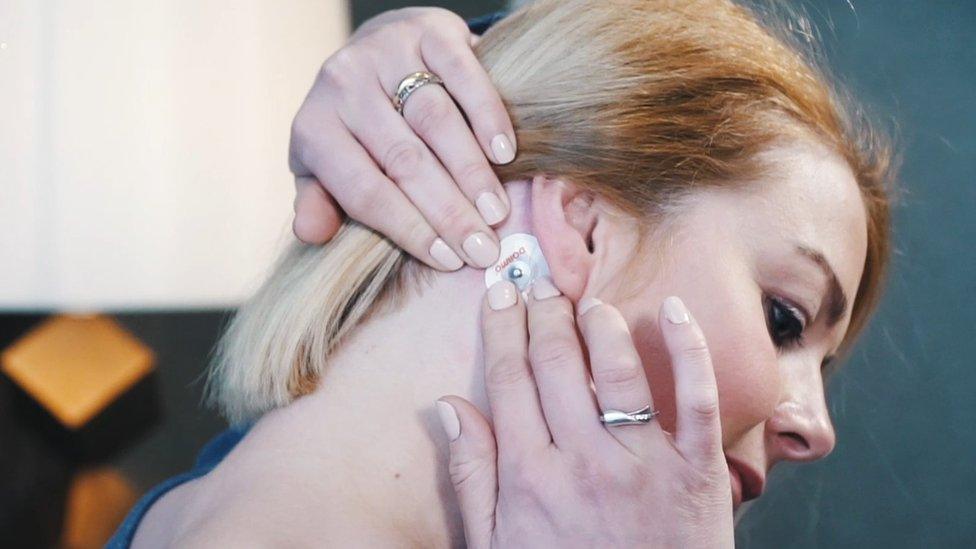
The device delivers a low-level electrical pulse behind the ear
It was developed under the leadership of Dr McKeown, a 31-year-old neuroscientist who has a medical degree from Queen's University, Belfast.
To date, about 4,000 headsets have been sold worldwide but the product is still undergoing clinical trials, so claims about its effectiveness have not been independently verified.
However, Dr McKeown said individual users were "recording losses of 12-15lbs (5.4kg-6.8kg) over an average period of eight weeks".
"There's an area in your brain - it's called your hypothalamus - and it's a really centre structure which controls things like your appetite, your metabolic rate, metabolic hormones and ultimately it determines how much body fat you'll naturally store," he told BBC News NI.
"That's great if you have a lean hypothalamus and it keeps you lean and athletic - we all know people who can eat whatever they want and they tend to stay around the same weight."
He claimed that some people have a hypothalamus which naturally stores "more body fat than they would like".
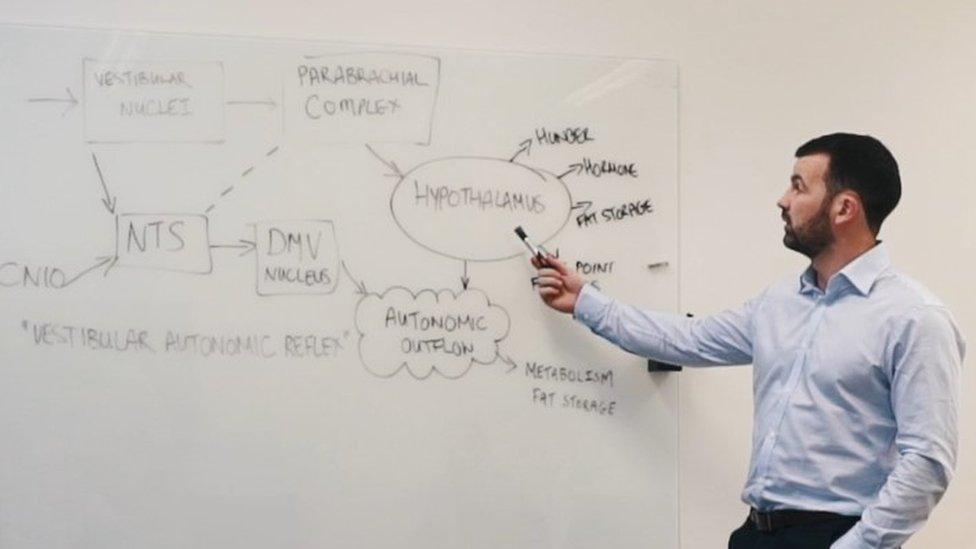
Dr Jason McKeown explains the theory behind the technology in a promotional video
"We developed Modius to put a little electrical signal into the skin behind the ear because there is a nerve there which runs into the hypothalamus area," Dr McKeown said.
'No quick-fix'
"The idea is that if we can repeatedly stimulate that area with a low-level electrical pulse behind the ear, it ultimately just makes it easier for someone who is trying to lose weight because they are not getting the same response that their body always [has] where it tries to keep fat storage."
However, he stresses that the gadget is not a "quick-fix" and will not compensate for an unhealthy diet and exercise regime.
"People will be disappointed if they think they can just wear the headset for a week or two and squeeze into a dress for a wedding," he said.
"We're really trying to encourage people to actively put this into a lifestyle - improve their general health, improve their physical activity levels and improve their nutrition and diet."
The gadget's weight loss claim is currently based on the firm's own testing system.
"We've analysed the data from about 650 people," Dr McKeown told BBC News NI.
"80% of people have reported, on average, 6lbs (2.7kg) of weight loss in six weeks."
However, he admitted there was a "wide range" of approaches to weight loss within this sample group.
"We're finding that people are almost trying to test the device to some degree and some people are adamant that they won't change anything about their life, whereas we've got other people who are really engaged and are actively trying to lose weight."
He added: "Also there are a range of metabolic issues - people with thyroid problems, people with diabetes, people on medication that we know influences weight - so over that wide spectrum we are actually very pleased with those results."
Clinical trials
The company is currently seeking approval from the US Food and Drug Administration (FDA) to have the device used as a medical aid, but any official endorsement would depend on the outcome of independent tests.
"There are actually several clinical trials that we're running and we hope to have about 300 people through those.
"That, of course, will be double-blind, random control, peer-reviewed," Dr McKeown explained.
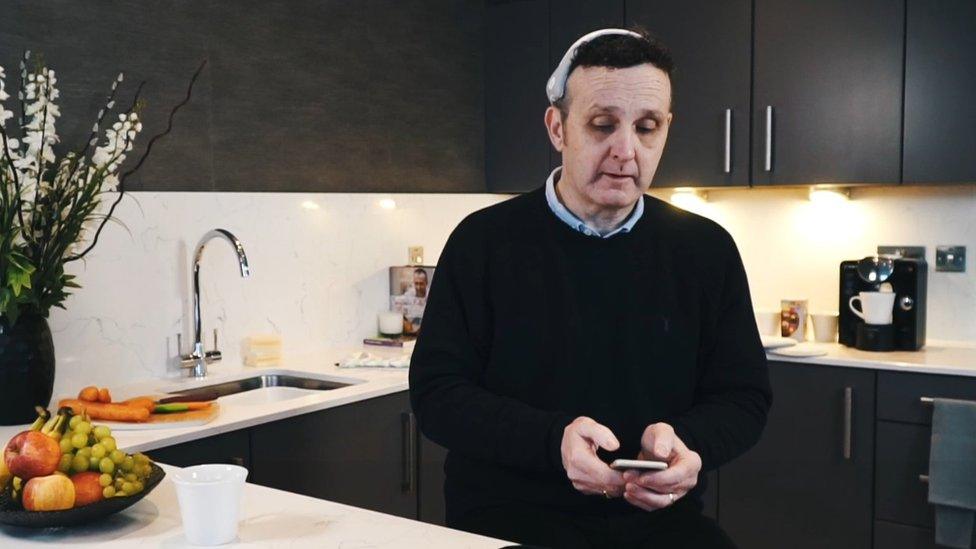
Crowdfunding has allowed the firm to begin selling the headset worldwide
The initial trials are taking place at the University of California (UC) San Diego, where he has taken up a neurology research position, becoming its youngest ever visiting scholar.
He added: "We're looking at an adolescent study in Middle America - that would be teenagers who have obesity - and we're also looking at a parallel study in Belfast."
The Modius project has already been backed by the economic development agency, Invest Northern Ireland, with funding of £259,000.
The firm also received almost £1.2m in crowdfunding during a 60-day campaign for its Modius headset last August.
The campaign raised money from more than 4,000 customers across 84 countries and has allowed the company to expand its team and start exporting worldwide.
- Published9 January 2018
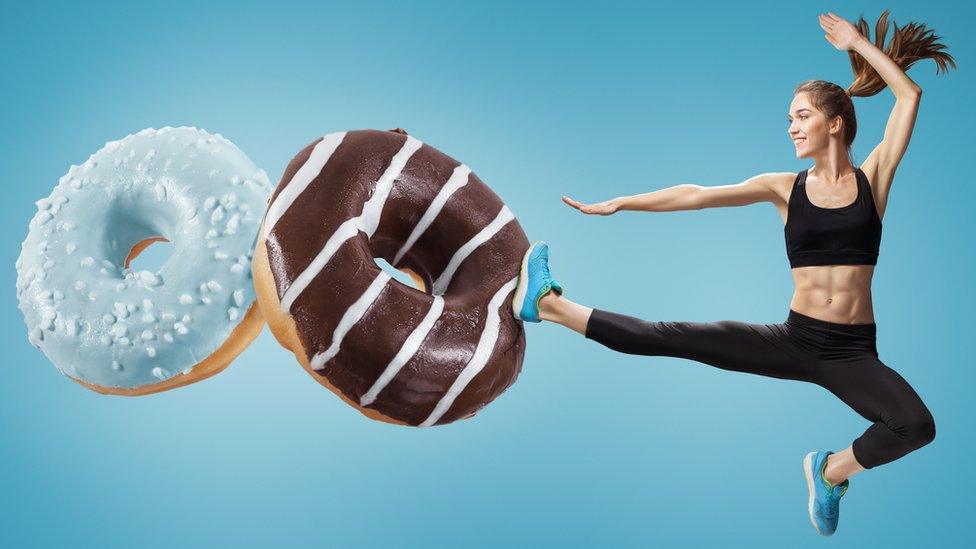
- Published25 October 2016
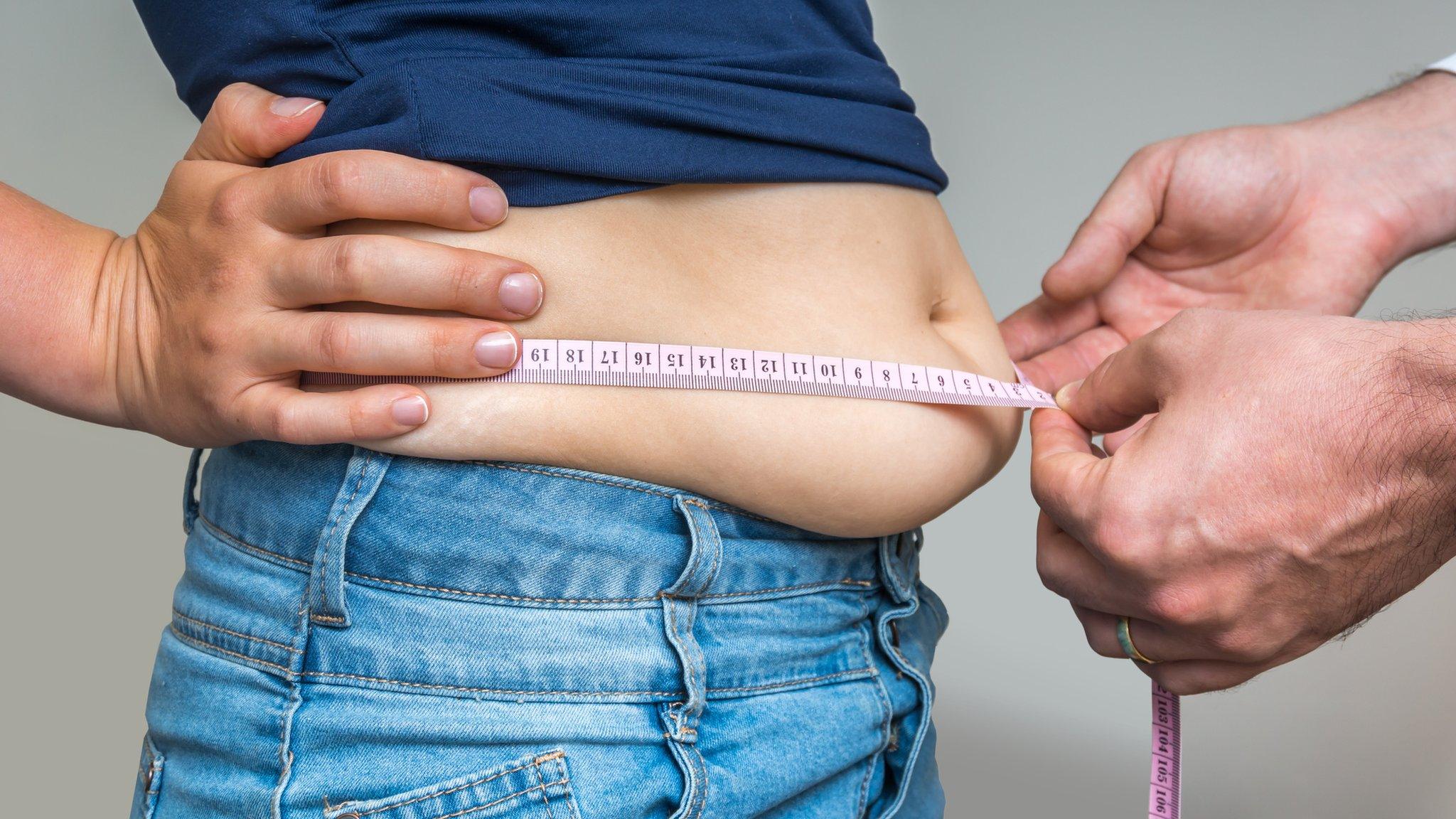
- Published1 September 2016
